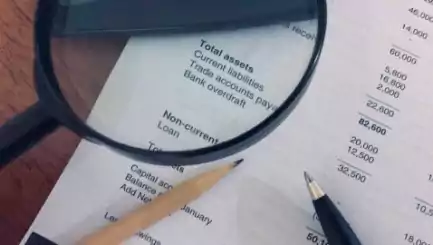Paperwork is an inevitability in Japan, more so when you’re signing a lease to an apartment or house. The process of securing a rental property begins with submitting an application form, either in-person at a realtor’s office or online like Village House offers on their company’s website.
Applications are processed anywhere from a couple of days to a few weeks depending on whether the criteria is met, when the application is submitted – during the peak moving months of January to March, applications may take longer to process – and what properties are available.
When submitting an application form to lease a rental property, it must be accompanied by other supporting documents, which will be discussed in this article.

Income Statement
An income statement is normally required to show proof of funds and evidence of viable employment. It lets the realtor and landlord know that the tenant is able to pay rent for the foreseeable future. An income statement can come in the form of a work payslip, invoice for work done; or if you haven’t started work yet, a contract and proof of employment certificate that stipulates your average monthly salary.
Guarantor
A guarantor or hoshonin is a person or company that acts as insurance during the period of your lease. A guarantor’s job is to compensate for any unpaid rent or damage costs the tenant is unable to pay or if the contract is suddenly and unexpectedly terminated.
Traditionally, guarantors were required to be Japanese citizens, usually the tenant’s close relative. However, a tenant’s place of employment or academic institution can also step in as guarantor.
Nowadays, it’s more common to go with a guarantor company or hoshonin-gaisha to act as guarantor. The tenant will pay a one-off service fee, which can amount to half or a month’s rent along with a renewal fee. Many realtors in Japan have partnerships with guarantor companies and will recommend them to their potential clients so tenants don’t have to deal with them directly.
When signing up with a guarantor company, an emergency contact, preferably one situated in Japan, is normally required.
Screening Check
A screening check is the real estate industry’s equivalent of a background check that police will conduct. The reasoning is the same: to ensure the viability of the potential tenant wishing to lease a property.
Screening checks can take up to a fortnight to complete and usually involves both the guarantor company and property manager or landlord, who will review the tenant’s application form for suitability as a tenant.
Depending on who you’re renting from, potential tenants may receive a call from the guarantor company for a mini over-the-phone interview, which can be in English or Japanese, depending on the requirements and who you’re leasing with. The interview may cover some of the following topics:
- Proof of employment
- References from past landlords
- Emergency contact
- Japanese ability
- Residency status
If you pass your tenant screening, congratulations! You are now able to move on to the next step, which is signing the rental contract.
However, if your application got rejected and you are left wondering why, check out our article on the most common reasons for rejected rental applications.
For a more stress-free apartment renting process, consider applying for a Village House apartment. Village House offers multilingual support and budget-friendly upfront costs!

Contract
In Japan, it’s common for apartment leases to be 2 years long with an option to renew and cancellation fees will incur if a lease is broken early. For example, at Village House, tenants will have to pay the equivalent of 3 months’ rent if a lease is canceled within 12 months and an equivalent of 2 months’ rent if canceled within 24 months.
Contracts will also stipulate the initial costs of leasing an apartment – deposit, key money, renewal fees, brokerage fees, etc. Some of these may be negotiable, depending on demand, availability, and whether the potential tenant is renting during peak or off-peak moving season.
Payment
Direct debit has become the more common method of payment when it comes to paying rent and usually tenants need to register with their bank accounts to allow for rent to be directly debited from their banks. However, depending on what is stipulated in the lease or what the tenant has negotiated with the realtor or landlord, payment can be in cash, via credit cards, or the tenant wiring their rent money to the realtor or landlord’s bank account monthly.
Related articles:
- All the Documents You Need when Signing a Rental Contract and Applying for an Apartment
- A Foreigner’s Guide to Renting in Japan: Common Pitfalls to Avoid
- First Time Renting Alone? Essential Questions to Ask Your Real Estate Agent
- Tax Season Survival Guide: Tax Returns Made Easy!
- Top 5 Questions Your Real Estate Agent Will Ask You When Searching For A Rental Apartment



